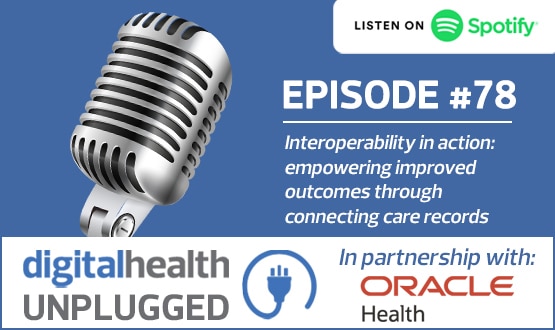One London to begin ‘deliberative’ dialogue on data use, privacy and consent
- 5 August 2019

One London will launch a “deliberative programme of engagement” with patients after research highlighted a lack of understanding on how patient information was used beyond their direct care.
The partnership has appointed Ipsos Mori and The Kings Fund to begin a dialogue with Londoners to understand their expectations around the use of health and care data.
It comes after a report, commissioned by One London, demonstrated gaps in public knowledge around how health information was used for purposes other than care delivery – for example, in quality improvement, system planning and research.
This understanding is seen as crucial in winning public trust in shared record initiatives and avoiding the mistakes of the past – including the long shadow cast by care.data.
The programme also aims to explore how joined-up care can better target those who would benefit from it most, such as vulnerable people and those with complex, multiple conditions.
Luke Readman, One London’s chief officer and director of digital transformation for London, said: “This programme will have significant reach across London, with a strong focus on engaging seldom-heard and vulnerable groups, as these voices are a clear gap in the existing evidence.
“With visible leadership from clinicians and regional health and care executives, we will – for the first time – establish the expectations of Londoners with regards to health and care information uses, working with Londoners to shape ‘the rules of the game’.
“This will give us the legitimacy to proceed, knowing that our deliberative approach is helping to build trustworthiness and confidence amongst the populations we serve.”
‘Understanding public expectations of the use of health and care data’ suggests previous engagement with patients has focused heavily on the anticipated benefits or potential concerns around the use of healthcare data.
The report confirms a strong expectation amongst the public that their information should be joined up and available to clinicians at the point of care, despite this not routinely being the case.
However, it also highlights that the picture is less well-developed when it comes to patients’ understanding of how their data might be used for other purposes, and the trade-offs they are willing to make accordingly.
Authored by CurvedThinking and developed in consultation with Understanding Patient Data, the report concludes this lack of awareness poses a threat to the ongoing LHCRE programmes.
Significant benefits to be realised
Commenting on the research findings, Dr Vin Diwakar, CCIO and regional medical director for the NHS in London, said: “There are significant benefits to be realised from joining up health and care information, for example, better integration of care, reduced risk of errors and better planning of services to ensure Londoners’ needs are met.
“Whilst the benefits of joining up information may be obvious to many, we cannot assume that the case has been made more broadly across our population. It is therefore vital that we engage with Londoners to understand exactly what people’s expectations are; and to build trust, support and confidence amongst the public and professionals about the use of health and care information for individual care delivery and for a range of other uses.”
One London commissioned the report as part of an engagement programme surrounding its shared record project, which aims to make all information on NHS patients in London available at the point of care by 2020.
Natalie Banner, lead at Understanding Patient Data, said: “This report makes for essential reading for all those involved in the development of the LHCRE programme, both at local and national level, and for other programmes and organisations that manage and use patient information.
“Many people talk about the importance of public trust as essential for underpinning exciting new innovations in data integration and use. Trust can only be earned, and that starts with understanding what people think, want and expect.
“This report shows us the steps that need to be taken to put the rhetoric on trust into practice, and to make trustworthy care record systems a reality.”
A full copy of ‘Understanding public expectations of the use of health and care data’ can be found here.





2 Comments
“Many people talk about the importance of public trust as essential for underpinning exciting new innovations in data integration and use. Trust can only be earned, and that starts with understanding what people think, want and expect.”
I’m yet to see the NHS trying to gain trust. Although Joe MsDonald’s work Up North seems to be going against the general trend.
“This will give us the legitimacy to proceed…”
As long as they don’t see it as legitimacy to ignore anyone’s objections….
Excellent work by our friends in the South which very much confirms what we found in the North https://www.greatnorthcarerecord.org.uk/information-for-patients/researching-the-publics-views-on-sharing-their-medical-information/ Time to have a major rethink about putting the citizen genuinely in charge of their records. The only way to secure their trust in the future and to make the data flow.
Comments are closed.